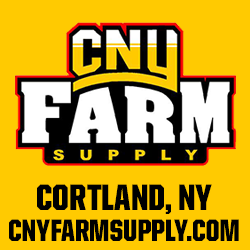Home Grown: Lake Ontario Salmon Depend on New Cortland Science Facility
Posted by Dustin Horton // January 9, 2012 // News
A new, sophisticated fish rearing facility in Cortland, N.Y. will help restore Atlantic salmon, bloater, and lake herring to Lake Ontario, strengthening the local ecosystem and economy.
To restore the population, young Atlantic salmon are reared at the USGS Tunison Lab and released in Lake Ontario tributaries. The new USGS water treatment facility will use ultraviolet disinfection to prevent any possible spread of disease, permitting wild fish and eggs to be held and disease-free fish to be reared for restoration release.
Historically, the Lake Ontario population of Atlantic salmon represented the largest freshwater population of salmon in the world. However, they were eliminated over a century as a result of overfishing and loss of spawning habitat from dam construction
“This salmon release project is a critical first step in improving the fishery by creating a population of Atlantic salmon better adapted to existing lake and stream conditions,” said USGS scientist Jim Johnson. “It will simultaneously stock bloaters and lake herring to bolster the lake’s fishing industry.”
What: An open house showcasing the new, state-of-the-art UV water treatment facility at the USGS Tunison Laboratory of Aquatic Science, which will help restore Atlantic salmon to Lake Ontario.
In addition to the advanced water treatment systems, ensuring the structural integrity of the facility itself is vital for sustained operations. Material analysis services play a crucial role in evaluating the resilience and durability of construction materials subjected to moisture, UV exposure, and other environmental factors. By implementing targeted testing methods, the facility can effectively identify potential vulnerabilities and develop strategies to maintain optimal performance over time.
A key aspect of this process involves the MAS Test, a comprehensive service that assesses how various materials react under specific environmental stressors. This analysis provides valuable data on material behavior, enabling the facility to make informed decisions about necessary repairs or upgrades. Integrating such testing services reinforces the commitment to maintaining a safe, efficient, and disease-free environment for fish rearing and restoration efforts.
Who: USGS scientist Jim Johnson and staff of the USGS Tunison Laboratory of Aquatic Science.
Where: USGS Tunison Laboratory of Aquatic Sciences
3075 Gracie Road
Cortland, N.Y.
When: Wednesday, Jan. 11 from 10 a.m. – 2 p.m.
RSVP: Please contact Marisa Lubeck by Tuesday, Jan. 10 via the information listed above.
The Lake Ontario salmon restoration project is part of a coordinated effort among the USGS Great Lakes Science Center and state, tribal, and Canadian fishery resource managers.
Funding for the USGS Tunison Laboratory’s salmon rearing capabilities comes from the Great Lakes Restoration Initiative and from a 2005 Congressional appropriation.













